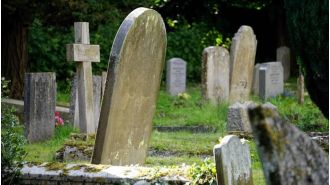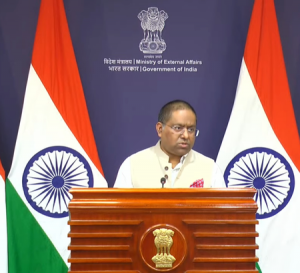Speech that is given to a group or community, often used to express beliefs, values, and opinions. Group speech used to share beliefs and opinions with community.
PM accused of violating election law with "communal" speech, facing complaints to disqualify him. Law prohibits candidate from influencing vote.

The recent controversy surrounding the Prime Minister has caused quite a stir among the public and political circles. It all started when the Opposition accused him of violating the Representation of the People Act during a speech that they deemed as communal. In response, a complaint has been filed with the Election Commission and the courts to disqualify him from office.
According to the Act, any appeal made by a candidate to the voters based on their religion is considered a corrupt practice. However, the Supreme Court has previously passed two judgements that have given exemption to Hindutva, a term often associated with Hindu nationalism. The first case that brought this issue to light was between Shiv Sena's Dr Ramesh Yashwant Prabhoo and Prabhakar Kashinath Kunte back in 1995.
The charge against Dr Prabhoo was based on three public speeches made by Bal Thackeray, the founder of Shiv Sena, in November and December of 1987. The Bombay High Court found these speeches to be inflammatory and incendiary in nature as they appealed to the voters to choose Dr Prabhoo simply because he was a Hindu. This, in turn, promoted enmity and hatred among different religious groups in India.
Thackeray's words such as "We are fighting this election for the protection of Hinduism" and "This country belongs to Hindus and will remain so" sparked outrage and were seen as a direct attack on the Muslim community. The Supreme Court, however, overturned the High Court's decision and stated that these speeches did not violate the Representation of the People Act. The reasoning behind this was that Hindutva is not just a religion but a way of life, and therefore, cannot be considered as promoting communalism.
Another case that brought this issue to the forefront was between Manohar Joshi, who would later become Maharashtra's Chief Minister, and Nitin Bhaurao Patil. Joshi was initially disqualified by the Bombay High Court due to speeches made by Thackeray and other leaders of Shiv Sena. These speeches were recorded, widely reported on, and even transcribed by the police.
They included statements like "the first Hindu Rashtra (state) will be established in Maharashtra" and promises of jobs for Hindus if Joshi was elected. These speeches were seen as a direct attack on other religious groups and were deemed as appealing for votes based on religion. However, the Supreme Court overturned the High Court's decision, stating that a mere statement of hope for a Hindu state is not considered an appeal for votes based on religion.
The Supreme Court's judgements in both these cases raised concerns among many, including the then Chief Justice JS Verma. In response, AG Noorani wrote that Verma's disapproval was not enough, and it was his interpretation of the law that mattered. He argued that candidates don't just express hopes to gain votes, but they make promises and pledges to the electorate.
Therefore, statements like "the first Hindu Rashtra will be established" cannot be considered a mere expression of hope but a pledge to the people. Despite these concerns, the Prabhoo and Joshi judgements remained unchallenged until 2016 when a group of petitioners raised their voice against it. They argued that the Hindutva ideology has led to the homogenization and assimilation of minorities and marginalized communities, which goes against the principles of secularism and the Constitution.
However, their challenge was unsuccessful as the Supreme Court refused to hear the case citing a procedural technicality. This has allowed the RSS and the BJP to continue using the Hindutva ideology to further their agenda. In conclusion, the issue of Hindutva and its impact on Indian politics has been a contentious one.
While the Supreme Court's judgements may have given a legal standing to the ideology, it has also caused concerns among many about the protection of secularism and the rights of minorities in the country. The question of whether appealing to voters based on religion should be considered a corrupt practice remains unanswered, and it is up to the people to decide the direction in which they want their country to move forward.










